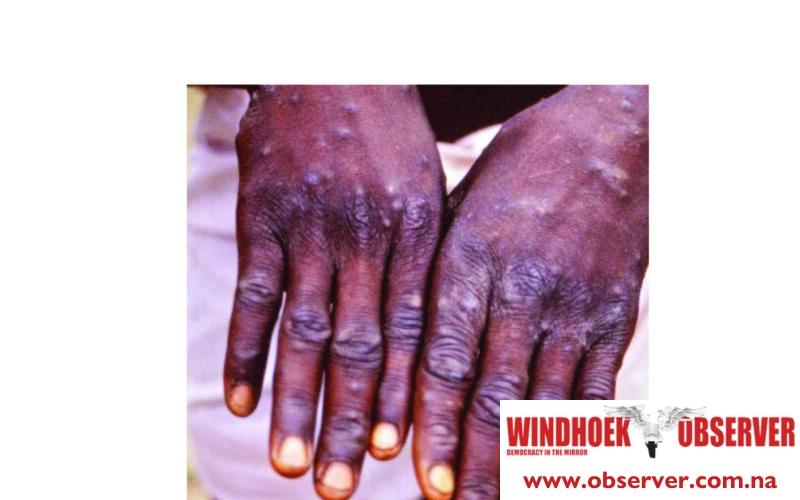Justicia Shipena
Namibia has confirmed its first mpox case, linked to recent cross-border travel within the Southern African Development Community (SADC) region.
The Ministry of Health and Social Services (MoHSS) declared an outbreak on Sunday after a case was confirmed in Swakopmund over the weekend.
Health minister Esperance Luvindao said the patient is receiving care in isolation at the Swakopmund District Hospital and remains in stable condition.
“In line with World Health Organisation (WHO) protocols, one confirmed case of Mpox constitutes an outbreak,” she said.
She said the ministry’s team in the Erongo region are tracing contacts and monitoring potential additional cases.
“Namibia’s robust surveillance system ensures that any person showing symptoms consistent with Mpox is promptly identified, tested, and monitored,” Luvindao said.
Luvindao said the country is ready to respond to public health emergencies and has isolation facilities nationwide that can handle suspected infectious disease cases.
Mpox, a zoonotic disease caused by an orthopox virus, is similar to smallpox.
It was first identified in monkeys in 1958 and in humans in 1970 in the Democratic Republic of the Congo (DRC).
The current global outbreak is mainly driven by human-to-human transmission.
About 17 African countries, including the DRC, Zambia, Malawi, and Tanzania, are battling active outbreaks. In January, Ghana reported 34 new cases, bringing its total to 79 at that time.
Last year, the health ministry said Namibians had no reason to panic after the Africa Centres for Disease Control and Prevention declared mpox a public health emergency.
In 2022, former health minister Bernard Haufiku said the disease was reported to be largely confined to homosexuals, although its spread was still being studied.
That same year, the WHO declared Mpox a public health emergency of international concern.
Since then, the DRC has seen a sharp rise in Mpox cases and deaths. A new strain of clade I, called clade Ib, has been spreading person-to-person and has now been detected in other countries.
By August 2024, over 120 countries had reported Mpox cases between January 2022 and August 2024, with more than 100 000 confirmed infections and over 220 deaths.
According to Luvindao, the incubation period for Mpox is between 5 and 21 days. Symptoms include fever, headache, swollen lymph nodes, muscle pain and a rash that develops into blisters before crusting.
The rash often appears on the face, palms, soles, mouth, and genitals, lasting two to four weeks. Transmission occurs through close contact with respiratory droplets, body fluids, skin lesions, or contaminated objects such as bedding and towels.
“People should understand that mpox can infect anyone, it is not linked to any specific group or race,” Luvindao cautioned.
She said the ministry has activated its public health emergency response and mobilised resources to contain the outbreak.
Luvindao urged the public to avoid close contact with infected individuals, wash hands regularly and use personal protective equipment when caring for suspected cases.
“We urge the public to remain calm and to avoid circulating rumours that may cause panic. Please do not stigmatise or harass affected individuals or families. The ministry will continue to share truthful and timely information to safeguard public health.”
In August last year, WHO director general Tedros Adhanom Ghebreyesus declared that the rise in mpox cases in the DRC and several African countries constituted a public health emergency of international concern.
The WHO’s International Health Regulations Emergency Committee in the same month warned of the disease’s potential to spread further across Africa and beyond.
A month later, the Africa Centres for Disease Control and Prevention (CDC) said the outbreak remained uncontrolled and appealed for more resources to prevent a crisis worse than Covid-19.
By October 2024, more than 1 100 people had died of mpox in Africa, where about 48 000 cases were recorded since January that year.
The United Kingdom later confirmed its first monkeypox case, followed by Sweden and Germany.
The Namibian health ministry said it would continue to issue updates as the situation develops.




